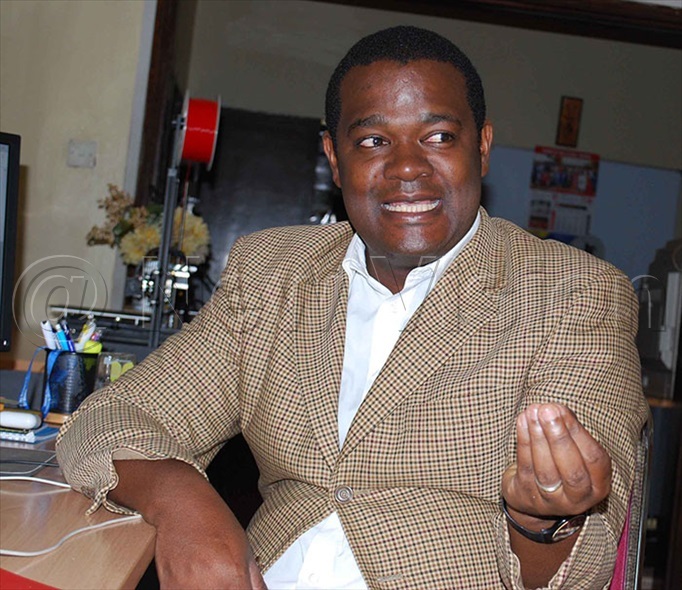Makerere don wins $250, 000 ORTACHI grant
Nov 04, 2020
Currently, Prof Banadda is ranked 69th worldwide in the area of waste management while in Africa, he holds the 4th position.

EDUCATION|MAKERERE|RESEARCH
KAMPALA - Makerere University don, Professor Noble Banadda has worn the Oliver Reginald Tambo Africa Research Chair Initiative (ORTACHI) grant of US$250, 000, worth over sh935m.
ORTACHI is a public benefit Organisation established to promote, protect, and preserve the legacy of veteran freedom fighters and distinguished democracy.
The grant will help the institution to enhance its agriculture research capabilities and it will annually be given to the University for five years.
ORTACHI as a prestigious chair, provides US$250,000 per year for the first five years, renewable twice based on satisfactory performance up to fifteen years.
In addition to the grant, Banadda also got an additional, euros 100, 000, will be given to him annually for the next 15 years from the Wageningen University of Netherlands.
The additional offer to the don was accompanied by an offer to be an extraordinary professor in Wageningen university.
Speaking during the inauguration ceremony, Banadda stressed that the ORTARCHI award will focus on sustainable agriculture under the thematic area of food security.
It will be utilized in supervising research in agricultural waste management on farms with a target to train 15 PhD, 9 Postdoctoral, and 27 Masters students.
With the grant, Banadda said his research will help in creating models of recycling waste into agriculture.
"Instead of accumulating and wasting waste, I want to use the engineering point of view to explore how best to extract nutrients from agricultural waste and plough them back into the soil to enhance firster growth of crops," Banadda said.

This, he said will avoid the use of artificial fertilizers but instead make use of organic ones to increase efficient technology in agricultural productivity.
According to Banadda, ORTARCHI is an African project aimed at building capacity in Africa with benefiting students being African.
As such, the University will advertise internationally to attract African students who will solve problems and create solutions for farmers in Africa, based at Makerere.
He said the research will mainly be focusing on farmers who are already organised and can easily air out their major problems so that that they can be researched upon and solutions sought.
"We want to target farmers in deep ends who are facing terrible challenges with waste so that we can readily them," he said.
Banadda however said the research will not target wastes from places like landfills just because it is a mixed waste.
"We shall only be focusing on assorted agricultural waste like maize cobs, banana peels which can extract products like ethanol and then plough back the nutrients into the soil to enhance increased plant growth and productivity," he said.
Banadda applauded South Africa's National Research Foundation (NRF), the Uganda National Council of Science and Technology (UNCST), and Wageningen University for supporting his candidature for the grant.
"I am grateful to Makerere University for giving me an opportunity to excel and the UNCST for their support letter and Wageningen University in the Netherlands for their conditioned offer upon my winning the Chair," he said.
Banadda emerged among the best 10 candidates out of the 1, 500 applicants who qualified to receive the Research Chairs.
Currently, Prof Banadda is ranked 69th worldwide in the area of waste management while in Africa, he holds the 4th position.
The ORTARCHI has advertised two years ago in search of high calibre scientists who will be able to supervise doctoral and post-doctoral research on the African continent, specifically to solve African problems.
Johnson Opolot, a farmer from Nakifuma said research on agricultural waste will help in reducing the usually accumulated waste right from the garden so that it can become useful compost to enhance agricultural productivity.
